的点评
Liszt in Weimar
Liszt-Haus的点评
点评:Weimar is a remarkable city in the history of music. The first glorious period of Bach's music composition (mainly organ music) was when he served as the director of music at the Ducal court at Weimar. Unfortunately, his former residence has been ruined, leaving only a commemorative bust erected.
Liszt's former residence, in addition to the University of Music Franz Liszt (founded by his student Carl Mullerhartung in 1872), still exist.
Liszt lived in Weimar for 13 years and acted as the Court Kapellmeister for a long period of time. His former residence is located on the outskirts of Weimar's main attractions, making it less visitors. (The Nietzsche Archive is even farther away, but still worth a visit.)
The museum is not big. Part of it preserves Liszt's original residence, showcasing his furniture and musical instruments; another section displays Liszt-related artifacts. Audio guide is available, but only in English and German.
The staff are very friendly and attentive. Service is excellent.
Liszt's former residence, in addition to the University of Music Franz Liszt (founded by his student Carl Mullerhartung in 1872), still exist.
Liszt lived in Weimar for 13 years and acted as the Court Kapellmeister for a long period of time. His former residence is located on the outskirts of Weimar's main attractions, making it less visitors. (The Nietzsche Archive is even farther away, but still worth a visit.)
The museum is not big. Part of it preserves Liszt's original residence, showcasing his furniture and musical instruments; another section displays Liszt-related artifacts. Audio guide is available, but only in English and German.
The staff are very friendly and attentive. Service is excellent.
翻译:魏玛是音乐史上一座非凡的城市。巴赫音乐创作(主要创作管风琴音乐)的第一个辉煌时期,正是他担任魏玛公爵宫廷音乐总监期间。可惜的是,他的故居已毁,仅存一座纪念性的半身像。
李斯特故居,以及弗朗茨·李斯特音乐大学(由他的学生卡尔·穆勒哈通于1872年创立)至今依然存在。
李斯特在魏玛生活了13年,并长期担任宫廷乐长。他的故居位于魏玛主要景点的郊区,游客较少。(尼采档案馆更远,但仍然值得一看。)
博物馆规模不大,一部分保留了李斯特最初的住所,展出了他的家具和乐器;另一部分则展出了与李斯特相关的文物。提供语音导览,但仅限英语和德语。
工作人员非常友好周到。服务非常棒。
李斯特故居,以及弗朗茨·李斯特音乐大学(由他的学生卡尔·穆勒哈通于1872年创立)至今依然存在。
李斯特在魏玛生活了13年,并长期担任宫廷乐长。他的故居位于魏玛主要景点的郊区,游客较少。(尼采档案馆更远,但仍然值得一看。)
博物馆规模不大,一部分保留了李斯特最初的住所,展出了他的家具和乐器;另一部分则展出了与李斯特相关的文物。提供语音导览,但仅限英语和德语。
工作人员非常友好周到。服务非常棒。
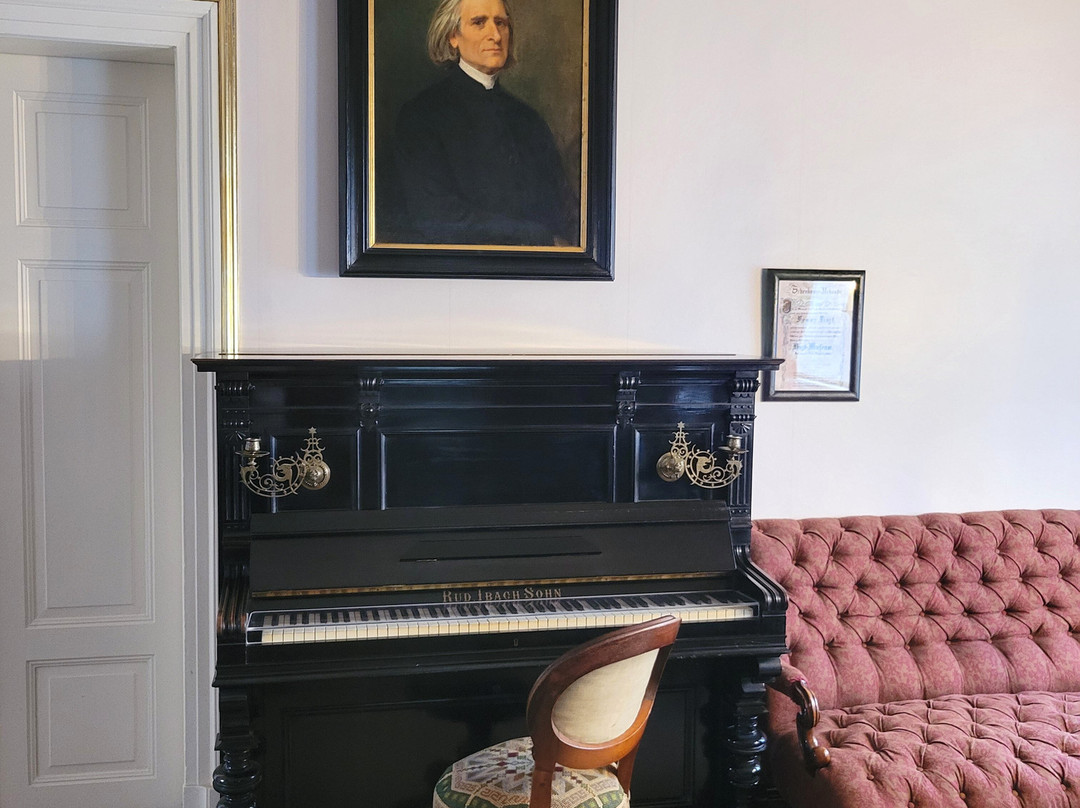
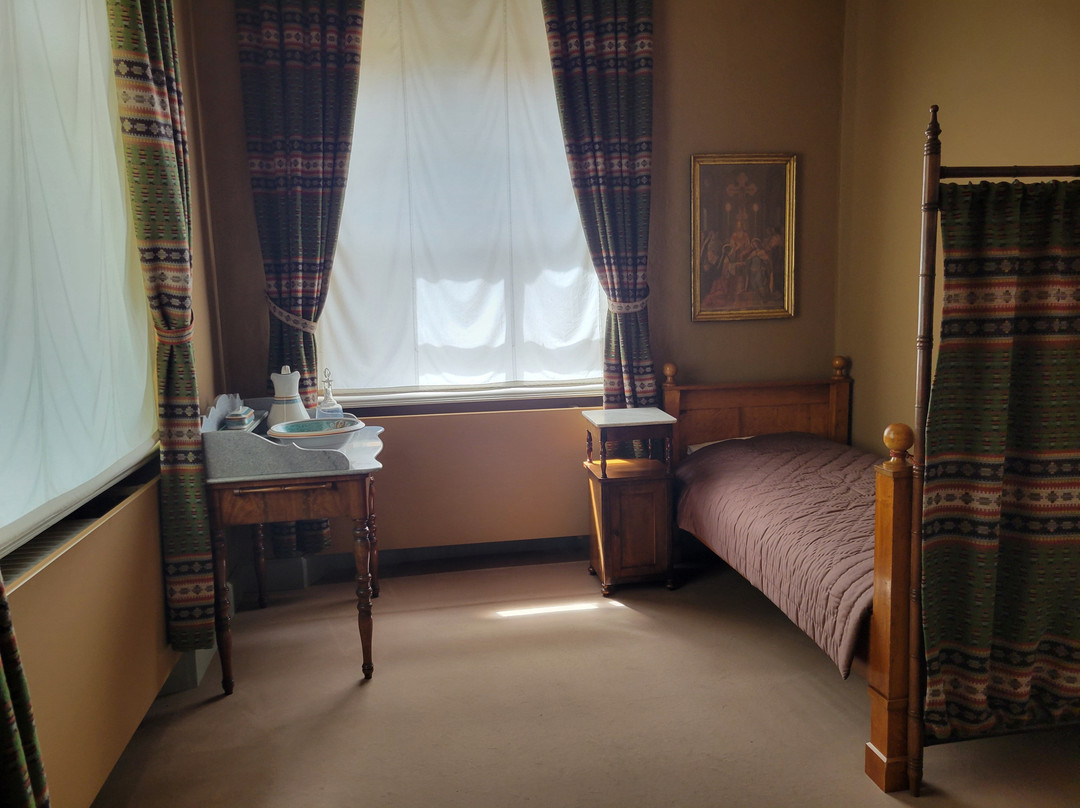
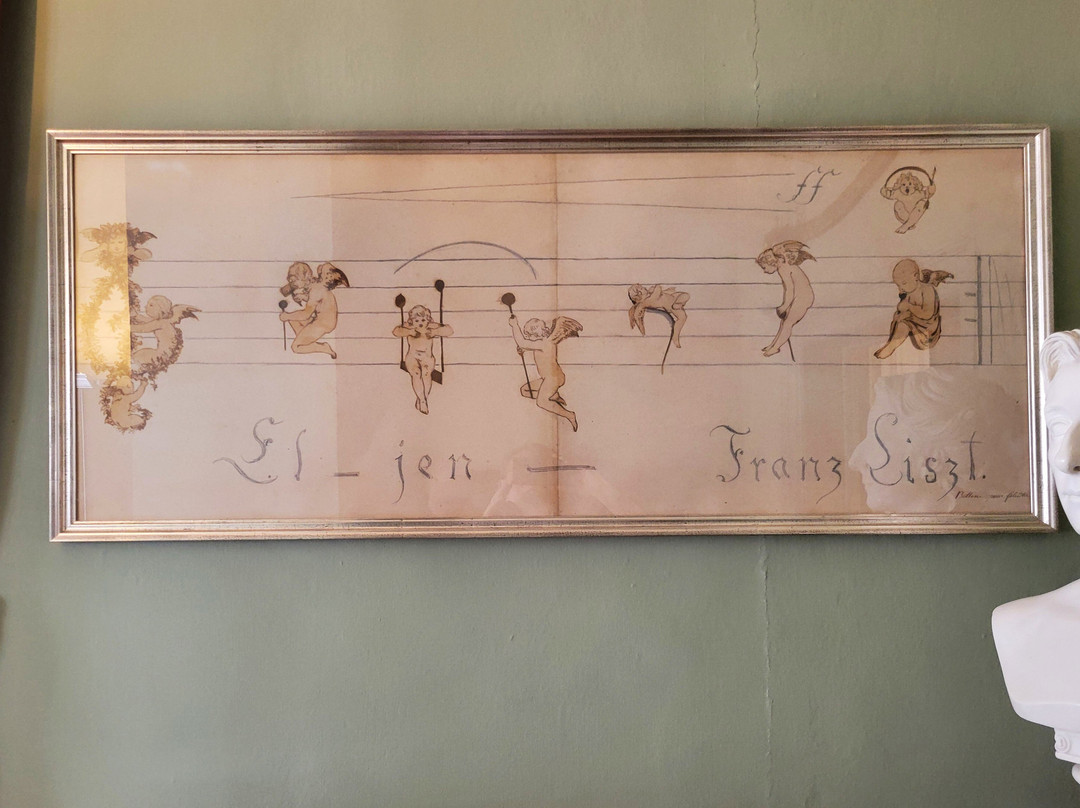
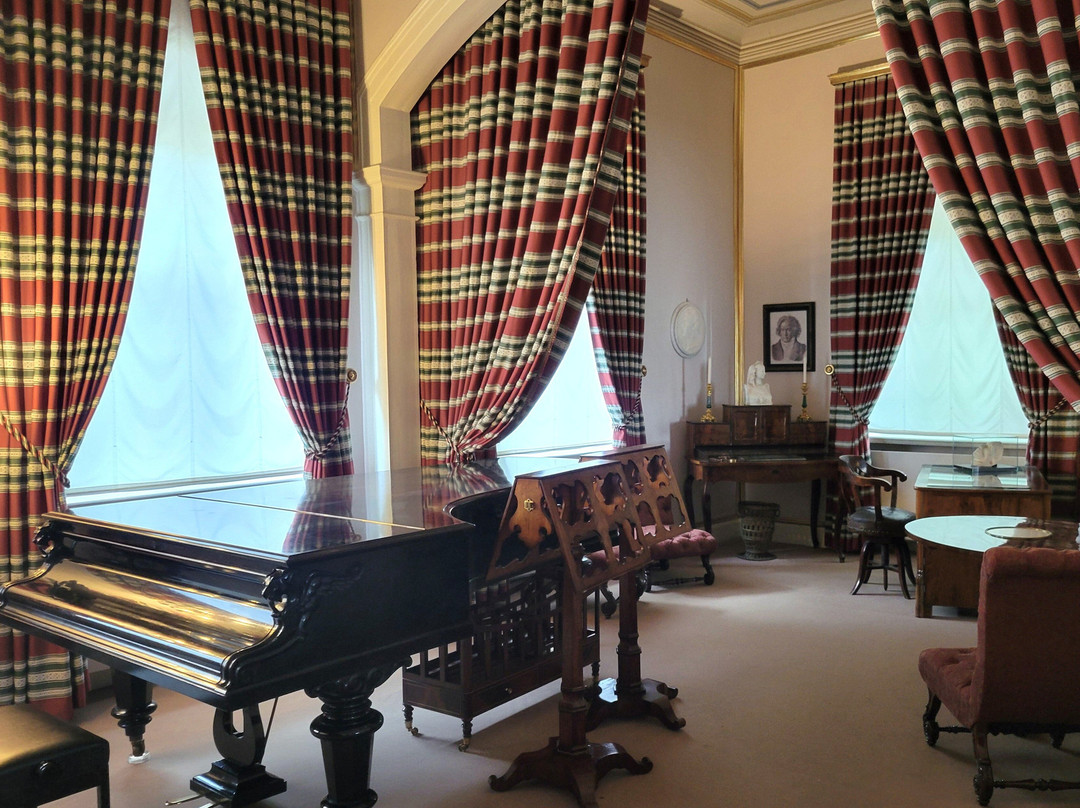
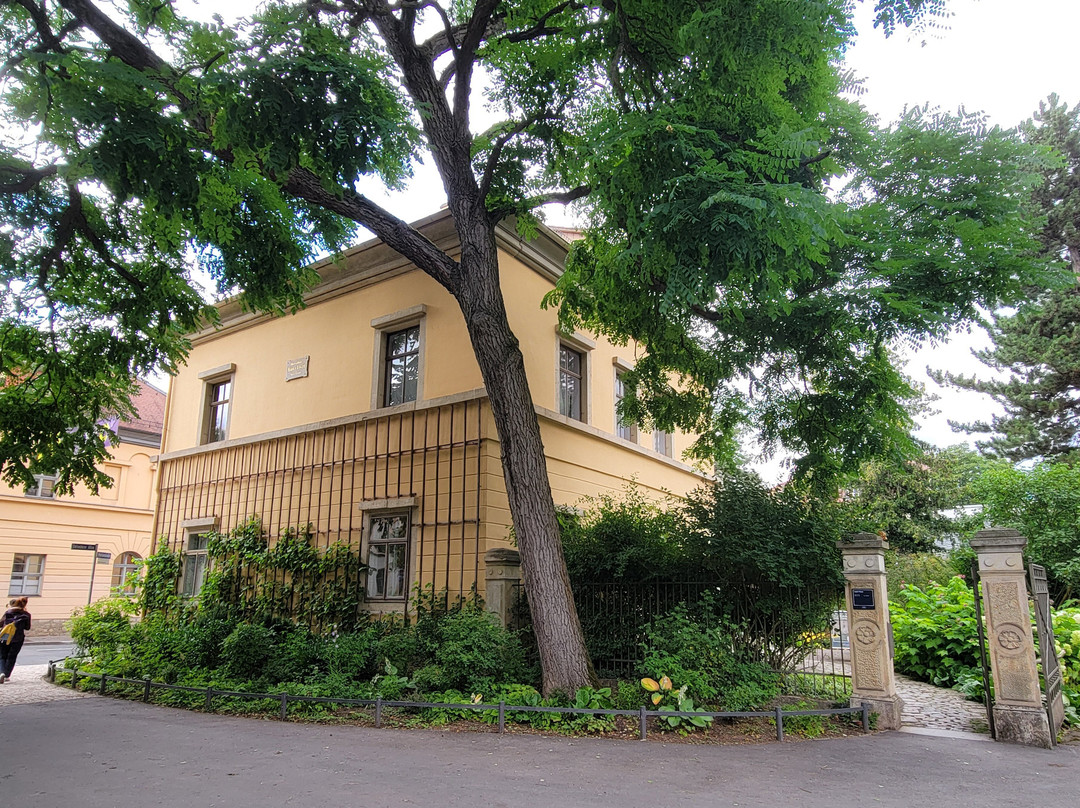
此点评仅代表旅行者个人的主观意见,并不代表TripAdvisor以及其合作方的意见。
关于我们
|
新闻动态
|
商务合作
|
会员中心
|
业主中心
|
业主通
|
常见问题
|
意见反馈
|
联系我们
|
营业执照
© 2026 Tripadvisor 版权所有。
使用条款 |隐私政策 |网站工作原理
部分照片由 VFM Leonardo 提供。
* Tripadvisor不是旅行社,也不是旅游预订服务代理商。我们提供免费、客观、公正的旅游资讯服务。 (显示更多)
TripAdvisor LLC 既不是预订代理商,也不是旅游运营商,不会向网站用户收取任何服务费。 按照规定,在 Tripadvisor 发布机票价格、游览和旅行套餐的合作伙伴(航空公司、旅行提供商及预订代理商),其标价须包含所有费用和附加费用。 例如, 机场出入境税费、消费税与其他服务费、手续费、杂费及附加费用。 当您向我们的某个合作伙伴进行预订时,请务必查阅他们的网站以了解当地行政部门要求的所有适用费用的具体情况。 除非另有说明,机票价格通常指的是一个人的价格(以人民币计)。
为方便起见,TripAdvisor LLC 根据从我们的预订合作伙伴获取的空房率计算每个酒店的均价。 对于游览和景点来说,所显示价格通常是每位成人的最低可用价格。 对于列出的任何旅行套餐或优惠,TripAdvisor LLC 无法保证任何特定的费率或价格。 此外,酒店均价每晚会更新,并以您的首选币种表示(使用现行汇率)。 由于这些已换算的价格是预估价格,因此,有关具体金额和币种请与预订网站进行核实。
此外,TripAdvisor LLC 无法保证我们网站上宣传的价格随时有效。 标价可能需要预订一定天数才能生效,或有不可用日期、使用条件或限制。
TripAdvisor公司对外部网站的内容一概不负责。优惠价格中不含税和其他费用。
ICP证:沪B2-20200433
沪ICP备20013175号
 沪公网安备31010502005427号
沪公网安备31010502005427号鹰程信息技术(上海)有限公司
货币/国家及地区
¥CNY
中国


